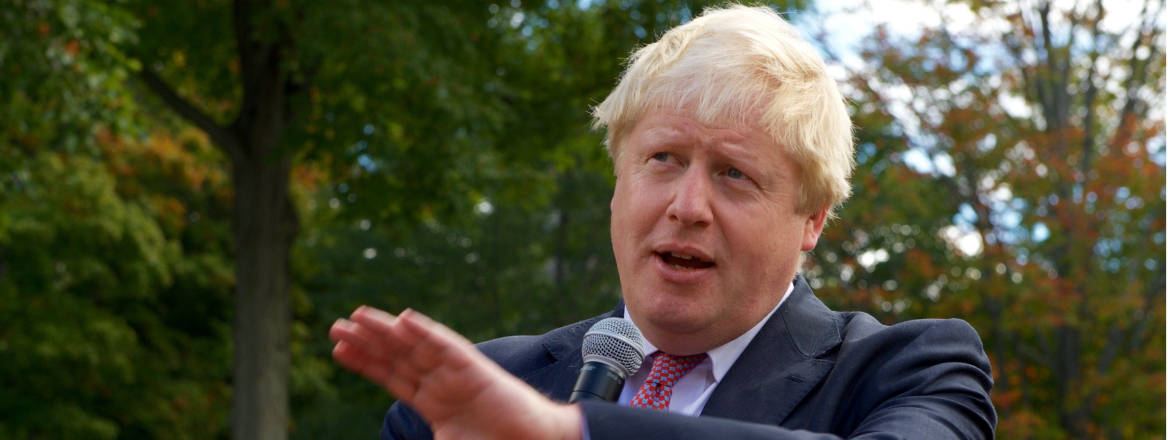British Foreign Secretary Boris Johnson was scheduled to visit Moscow this week. His trip has now been cancelled, partly because he wishes to intensify diplomatic pressure on Russia, but also because he is keen to persuade the new US administration about the virtues of foreign and security policy coordination.
The cancellation of UK Foreign Secretary Boris Johnson’s trip to Moscow is presented as a signal of the UK’s commitment to a principled stance on Syria; by not meeting with his Russian counterpart, Sergei Lavrov, Britain claims to be emphasising its demand for the Russian government to use its leverage over Syrian President Bashar Al-Assad to stop using wanton violence against his own people.
Yet this is not the only reason for Johnson’s decision. London is also considering its relationship with the US. Cancelling the meeting serves a key British foreign policy purpose: to show an enduring strong and special relationship with the US by allowing the US to make the first move towards Moscow at this critical junction.
The previous postponement of Johnson’s Moscow visit, scheduled originally for March, was in order to accommodate US Secretary of State Rex Tillerson’s attendance at the first NATO foreign ministers’ meeting since the administration of President Donald Trump came to power. At that time, ministers from 26 other member states had to rearrange their schedules to suit the US, but Johnson’s cancellation of this week’s meeting reflects an apparent division of labour between the UK and US on handling Russia, with most of the ‘heft’ being left to the US.
Tillerson will still be meeting his counterpart in Moscow on 12 April, with Johnson corralling allied solidarity against Assad’s actions in the G7 foreign ministers’ meeting, which is taking place in Italy at the same time. This informal division of labour is also, however, about preventing the US from going its own way with Russia, by highlighting to the US administration the enduring importance of a multilateral international approach to Russia’s involvement in Syria.
Developing the relationship with the US is clearly more strategically important than direct engagement with Russia at this particular moment and a joint approach on Syria is more effective than unilateral action. However, the cancellation of Johnson’s Moscow trip can also be regarded as a missed opportunity by the UK.
Since 2014, the UK has been influential in constructing the architecture of the EU sanctions targeting Russia’s violations of Ukraine’s territorial integrity. London has defined its policy as one of principles. At a bilateral level, the UK government has been more standoffish with the Russian government than other Western partners.
As a result, Britain did not take part in the Normandy Format – the diplomatic effort run by France and Germany to settle the crisis in Ukraine. The UK’s absence limited its access to Russian contacts even further. London will be cautious about engaging with Russia, concerned that it might give the impression that concessions are on the table before Moscow acts constructively.
The UK is certainly not against engagement, as shown by the Moscow visit of General Gordon Messenger, the Vice Chief of Defence Staff, in February. The challenge is to make Britain more relevant to the handling of the Syrian crisis without diluting or weakening the US lead on the matter.
The joint US–UK reaction to the latest developments in Syria indicates that the policy of regime change is back on the agenda, with the likely additional demand that Russia withdraw troops from Syria as part of any future solution to that country’s civil war. UK Defence Secretary Michael Fallon has stated that ‘by proxy Russia is responsible for every civilian death. If Russia wants to be absolved of responsibility for future attacks ... [Russian President Vladimir Putin] needs to enforce commitments’.
Protest from afar means little to Russia, and solidarity is not action in itself, but the current diplomatic manoeuvring is as much a UK–US confidence-building measure as a protest against Moscow. For the moment, Russia continues to have the upper hand in Syria compared to the West, largely because it has a bigger political stake and a larger military involvement.
However, there is a new factor with unknown consequences: the Trump administration, which may reassess its role in the conflict. Although the US is unlikely to want further confrontation, the air strike last week does hint at a new US assertiveness and that has caught Russia by surprise. Evidently, Johnson does not wish to provide Russia with any certainty at this moment by touring Moscow.

